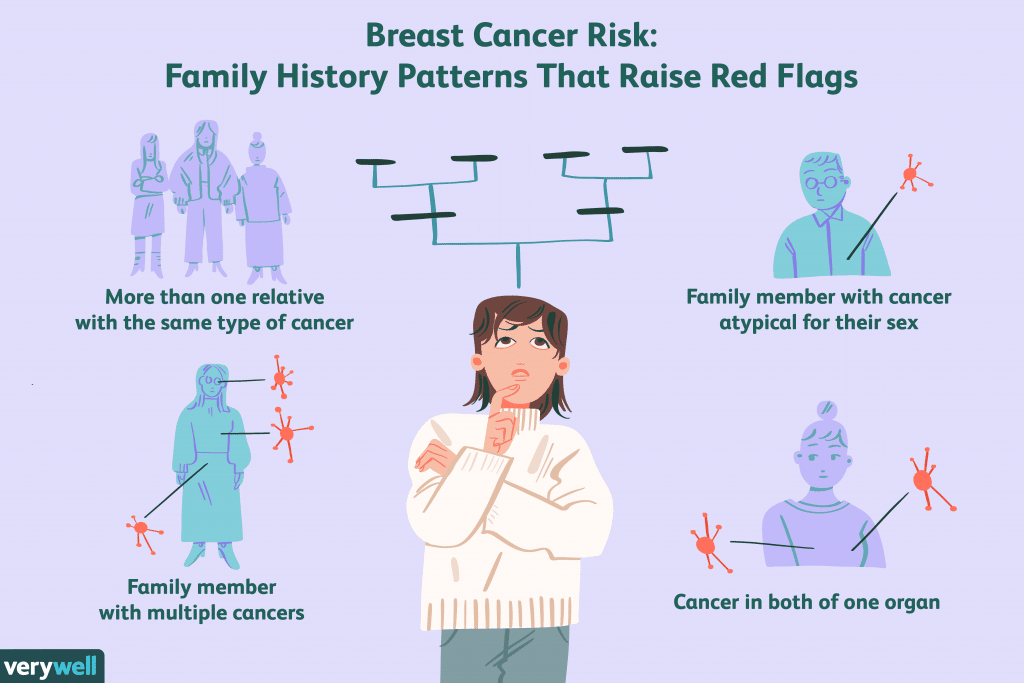One of the most important risk factors of breast cancer is family history of breast cancer. Women with close relatives who’ve been diagnosed with breast cancer have a higher risk of developing the disease.
If you’ve had one first-degree female relative (sister, mother, daughter) diagnosed with breast cancer, your risk is doubled. If two first-degree relatives have been diagnosed, your risk is 5 times higher than average.
GENETICS: In some cases, a strong family history of breast cancer is linked to having an abnormal gene associated with a high risk of breast cancer, such as the BRCA1 or BRCA2 gene. Others include TP53, PTEN etc











